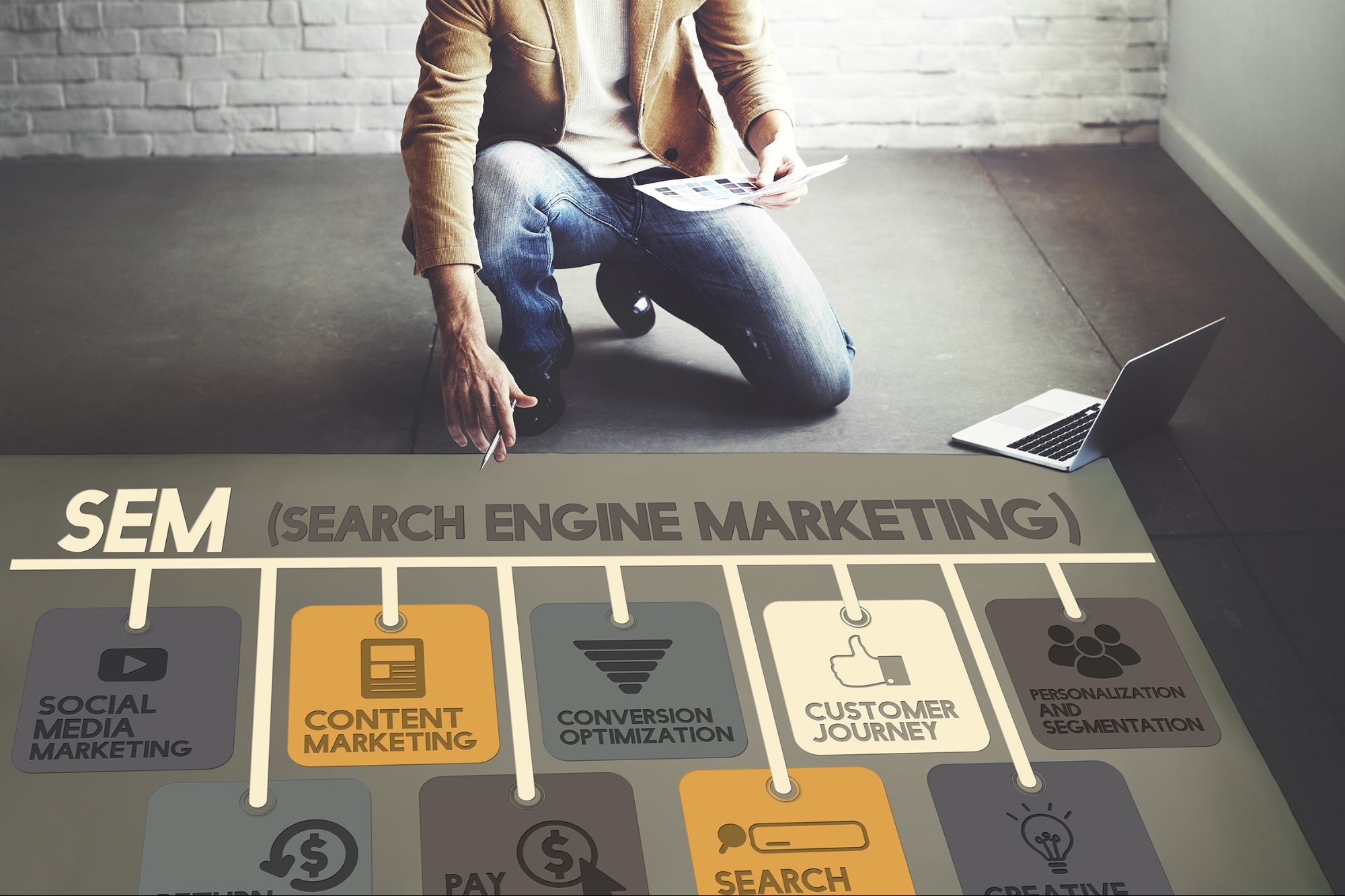Sponsored Content | Brand Spotlight Partner What's This?
Smart Tips for Doing Search Engine Marketing Right Here's what every smart business owner needs to do to optimize their SEM strategy and maximize web traffic.

If you have a business website, you'll likely want to drive traffic to it and attract potential customers. That's where search engine marketing comes in.
For the uninitiated, search engine marketing (SEM) is the process of creating advertisements that are placed within search engine results pages. Also referred to as paid search advertising, the goal for utilizing SEM is to drive relevant traffic to your business's website where those clicks hopefully convert into sales.
Enterprise businesses need a strong strategy to increase their product visibility in the search engine results pages while minimizing the costs of managing digital marketing at scale. One company that understands the importance of strong SEM is Fluency.inc, a Burlington, Vt.-based b-to-b digital advertising-automation platform. Fluency automates critical but repetitive and time-consuming tasks associated with digital advertising management, allowing companies to launch multiple campaigns at once with access to insights to help drive ads and target customers.
"While the world has been rapidly moving toward a mixed shopping ecosystem, online to in-store, the pandemic has appreciably accelerated shopping habits to more online-based retail and research," says Andy MacLeay, Fluency's senior director of growth strategy. "Using SEM best practices to help communicate to this evolving online retailing reality can be a cost-effective strategy to help you retain and grow your customers, as they look to online sources as a critical avenue to continue to safely do business with the retailers they trust."
Here, MacLeay, offers his best tips for optimizing your own SEM strategy and maximizing digital traffic.
Meet the moment with messaging.
Well before the onset of the global health crisis, as many as four in five consumers said they use search engines to find local information—such as products and services they need and the nearby businesses that provide them. That's a lot of local search.
As such, businesses that want to capture customers need to ensure that their ads are targeted in terms of messaging and location. It's all about the ability to target the right customer at the right time with the right message, MacLeay says.
That can be a lot to manage, especially for businesses with multiple locations with different advertising strategies and needs at the local level. MacLeay suggests using localized data to increase relevance. "Perhaps that's letting people know you are open and are following safe protocols through the pandemic, or perhaps incorporating weather-based intelligence into ad copy to make the messaging more relevant," he says.
Always be consistent.
Since businesses are typically using paid search ads to drive traffic to their website, MacLeay says consistent branding between ads and your website is a must. Having a .inc domain, for example, helps make your brand recognizable. Unlike other domains, claiming your company's exact name in your URL with a .inc domain goes a long way in building credibility and trust with customers.
Owning the exact match with a credible extension helps alleviate consumer doubt of the legitimacy of your business. Since there are questionable businesses online, you want to absolutely ensure your brand name is professional and appears legitimate.
Just as your SEM parameters are strategically set to ensure a specific audience is captured, you want to ensure your domain name follows the same concept. Having extra characters or a long domain can leave room for typos and you may lose customers trying to access your site. The more you can make your domain name clear and direct, the more likely your customers won't get lost finding you. Owning the exact match to your domain name is easy for customers to remember and feel confident when your SEM ads drive them to your website.
Automate the process.
As a business owner or manager, maximizing your team's efficiency and results should be among your top priorities. This can be difficult, however, when an individual or team frequently needs to complete repetitive tasks. Saving time and money goes out the window.
That's why 75 percent of marketers say they use at least one type of marketing automation tool. Automating digital marketing—SEM included—frees up time for your salespeople to focus on generating revenue and your marketing team to analyze data to create ads that increase relevant traffic to your website and capture leads.
That's why the founders of Fluency founded the company. Their goal is to "help advertisers and agencies scale their businesses, by automating much of the "block and tackle' tasks that would normally occupy an enormous amount of resources to monitor, detect and then change," MacLeay says.
Activate your data as an organization.
The last thing a growing business can afford to do is waste money on anything—SEM included. One way to make sure that your paid search ads are reaching the right customers with messaging that resonates is to take the guesswork out of ad creation. In other words, use data to refine your SEM process, from start to finish.
"All of the core first-party website data including inventory, visits, time on site, and products searched should be incorporated into the data you use to refine your advertising messaging," MacLeay says. "By using a digital marketing platform that can seamlessly ingest multiple data sources and intelligently apply it to your unique advertising strategies, you can use your most valuable asset: your business data."
MacLeay suggests that the better your first-party data is, the stronger you can make your own targeted advertising strategies. He says that having a .inc domain helps website visitors quickly identify with the brand or messaging your organization is pushing, enriching your own first party data sets and, ideally, informing you about how to optimize your paid search campaigns.
Click here to learn more about getting started with a .inc domain and getting your website recognized today.
